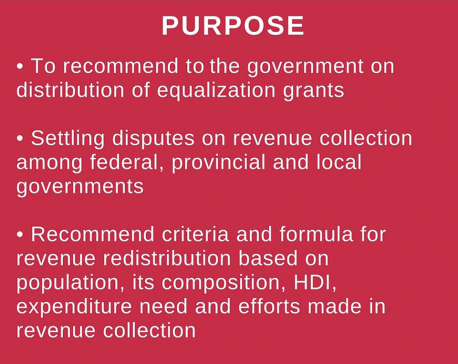
OR

You know you need to have that slightly aching tooth checked out before it gets worse. But you dread going to the dentist. And so you put it off, promising yourself you will go next week. Before you know it’s been six months and you are consciously using the right side of your mouth to chew.
Sounds familiar? Procrastination is something that we all do. Some are just better at it than others.
Shreya Dhital, a +2 student, says she procrastinates because she fears the result of her work won’t match her expectations. Additionally, when she puts off her work, thoughts of all the pending assignments make her anxious and she’s unable to break it down and tackle it.
Dipesh Gurung, who is also a +2 student, says he usually waits for the right moment or to feel motivated before starting on his assignments but that feeling or moment usually never arrives. Anagat Pokharel, a grade 12 student, has an interesting rationale behind why students generally procrastinate. He believes it stems from a lack of interest.
And indeed procrastination does seem to be quite common among students. Majority of the people who admitted to being brilliant procrastinators to this scribe were students. Experts define procrastination as the voluntary delay of some important task that we need to do, despite knowing that we will suffer as a result.
“Surprisingly, procrastination often has nothing to do with laziness,” says Karuna Kunwar, psychologist at Center for Mental Health and Counseling. She explains that even though a lot of people see these two things as being one and the same, they actually aren’t because, most of the time, procrastination stems from other issues including stress and childhood trauma, and could need counseling from experts to resolve, while laziness is more of a result of the things you prioritize and what the environment you grew up in has taught you.
Anish Maharjan, first year student of Computer Science, who claims to have been both lazy and a procrastinator at different points of his life, says there’s a huge difference between the two. If you are lazy you probably won’t feel guilty about doing a halfhearted job. Whereas if you tend to procrastinate, you are generally obsessed about the work you have to do but still can’t bring yourself to do it. “It’s like a mind block,” he says.
Agreeing with Maharjan, Pragya Mallick, second year Bachelor of Engineering student, says that because working on her assignments and studying take a lot of effort, she puts them off till the last minute and instead spends all her “free time” doing things she enjoys. “I always regret it later because most of the assignments I submit feel sloppily done and sometimes I even miss the deadline,” she says.
Procrastination is quite irrational. It doesn’t actually make sense to do something you know has negative consequences. But people do it anyway. Kunwar says is usually a way of coping with challenging emotions and negative moods that certain tasks bring about, like boredom, anxiety, insecurity, frustration, and self-doubt.
In 1997, one of the first studies on the destructive nature of procrastination was published in Psychological Science. The study rated college students on an established scale of procrastination, then tracked their academic performance, stress, and general health throughout the semester. Initially those who procrastinated were found to have lower levels of stress compared to others, presumably as a result of putting off their work to pursue more pleasurable activities. However, in the end, the costs of procrastination far outweighed the temporary benefits. Procrastinators earned lower grades than other students and reported higher stress and illness. Procrastinators didn’t just finish their work later, but the quality of it suffered as did their own wellbeing.
Besides this, procrastinators also suffer in their personal lives. Kunwar states that romantic, platonic and familial relationship of procrastinators often break off over time as people around them tend to think that procrastinators aren’t reliable, make a lot of excuses and aren’t punctual. Procrastinators also have unhealthy sleeping patterns and diet, and gradually develop a pessimistic outlook in life as they fail to recognize that the problem in their lives is their tendency to procrastinate and instead take it as their own failure to do the things they’re supposed to.
However, there are some people who claim that procrastination can have positive outcomes.
Fashion designer Shreesha Gurung claims that she thrives under pressure and racing against time to finish her designs fuels her creativity. She explains that when she has little time to complete her creations, her mind instinctively thinks of innovative ideas and all of her best designs have been created when she was rushing against time to complete them.
“If I think I have a lot of time before I have to complete a design, then I start overthinking things and stress myself out even more,” she says.
But this doesn’t mean you should think of procrastination as a positive trait. Kunwar claims that the reason some procrastinators think they work better under pressure is because they are quite capable to complete the tasks they’re supposed to be doing and are aware of how much time it takes them to complete those tasks. “Say, you’re given an assignment to complete over a vacation of 10 days. You know it will take you two days to finish that and so you wait until the second or the last day to start working on it. You might finish it on time but you will still be very stressed about it,” says Kunwar adding that if you actually complete it in the first two days, you can save yourself from stress and anxiety, and enjoy the rest of your vacation properly.
Sarika Nepal, a kickboxing instructor who is also a freelance model and plays badminton competitively, is also someone who likes finishing her work early. She’s generally very busy and states that if she doesn’t complete the work that comes her way immediately, she will mess up her whole timetable. She further explains that if she starts working early on her tasks then she has more time to think things through and redo anything that doesn’t satisfy her.
Likewise, Amit Khanal, manager at Yellow Planet Multipurpose Company, mentions that he finishes all the work he has to complete as soon as possible. He states that doing this significantly lessens his workload later and that he can focus on doing a single task perfectly before moving on to something else.
Gajal Chapagain, who is a data analyst at an IT firm, says that, from personal experience, the best way to cope with procrastination is to find out why you procrastinate in the first place. Chapagain, who claims to have been a big procrastinator during her college days, realized the reason she procrastinated on completing her assignments was because she didn’t like her major and changed it – from biology to computer science. And now that she actually enjoys her course, she finishes her work on time.
Kunwar also agrees that finding out why you procrastinate and tackling that head on is one of the best ways to deal with procrastination. She mentions that most of the time this is where people need external help – be it from a family member, friend or an expert – as they usually can’t identify the reason themselves. She suggests that procrastinators should plan their actions – especially ones that they generally put off – in detail and focus on actually completing each stage of their plan properly. “Ultimately it boils down to your determination to stop putting things off and get your life back on track,” concludes Kunwar.
anweitiupadhyay@gmail.com
You May Like This

Bangladesh's Deadly Narcotics Crackdown Sparks Fears of a Philippines-Style Drug War
More than 50 people have reportedly been shot dead in Bangladesh over the past week after authorities launched anti-narcotics raids that have... Read More...

Delay in fiscal commission appointments may hit budget transfers
KATHMANDU, Dec 28: Work has started on the budget for next fiscal year but the Ministry of Finance does not yet... Read More...

Ruling parties to delay tabling bill for a few days
KATHMANDU, Jan 3: The ruling Nepali Congress (NC) and CPN (Maoist Center) have made an informal understanding to delay tabling the... Read More...







Just In
- NRB to provide collateral-free loans to foreign employment seekers
- NEB to publish Grade 12 results next week
- Body handover begins; Relatives remain dissatisfied with insurance, compensation amount
- NC defers its plan to join Koshi govt
- NRB to review microfinance loan interest rate
- 134 dead in floods and landslides since onset of monsoon this year
- Mahakali Irrigation Project sees only 22 percent physical progress in 18 years
- Singapore now holds world's most powerful passport; Nepal stays at 98th











Leave A Comment